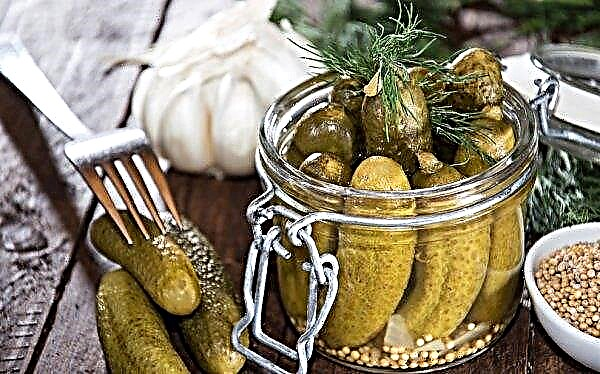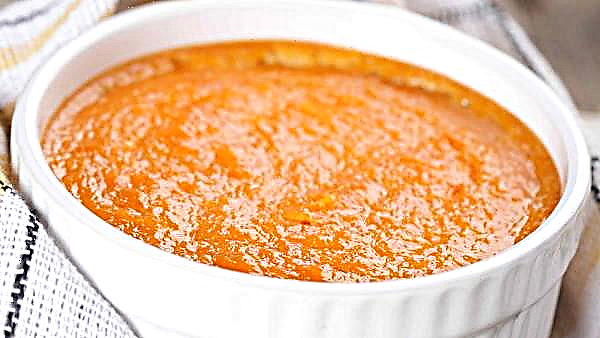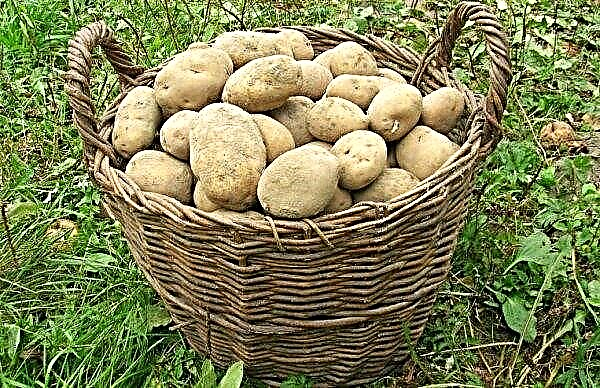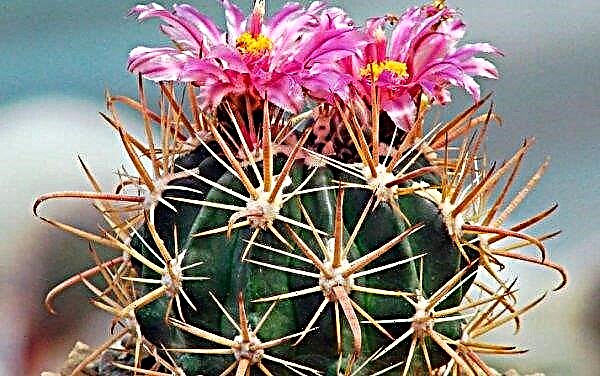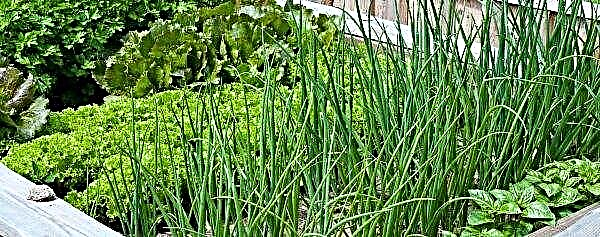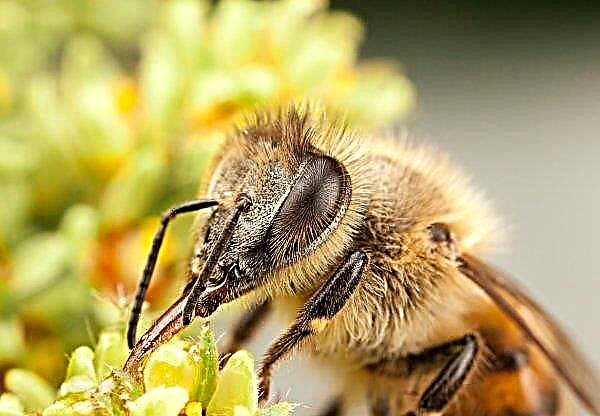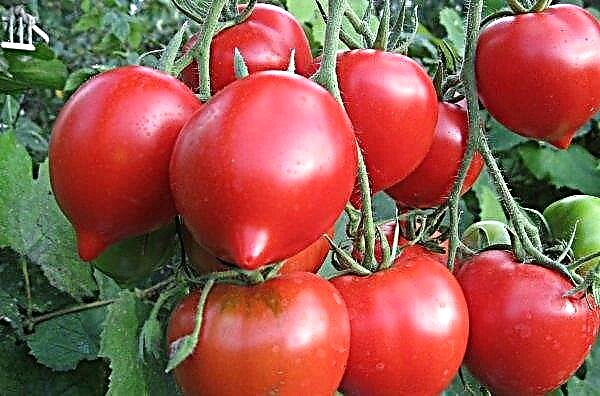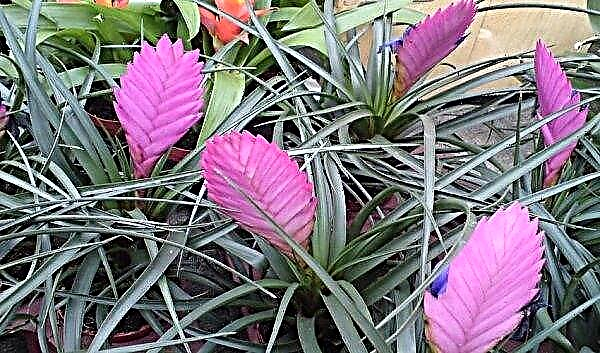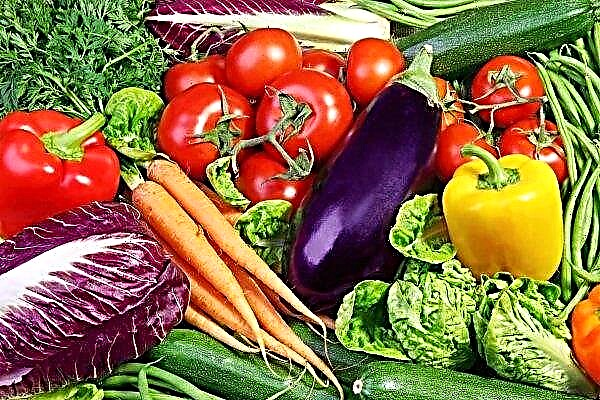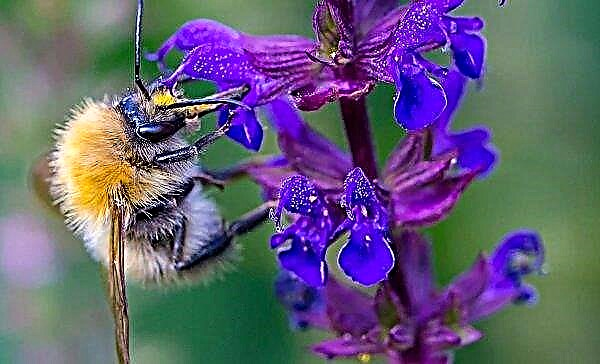Ginger has long been a panacea for many diseases. The useful qualities of its root are appreciated and applied in many folk recipes. In the case of the detection of helminths and other parasites of the human body, this plant can help both in prevention and treatment.
Ginger in folk medicine
Traditional medicine widely uses plant roots in anthelmintic teas, decoctions, tinctures, salads. The quantity and quality of vitamins and minerals in a plant is able to treat an ailment or at least ease the course of the disease.
Useful properties of ginger and mechanism of action
The vitamin composition of the plant is most represented by group B (up to 20% by weight), all of these substances have a mass fraction of 2 to 8 g per 100 g of product:
- B6 (pyridoxine);
- B5 (pantothenic acid);
- B9 (folic acid);
- B2 (riboflavin);
- B1 (thiamine).

There are also many vitamins C and E - 6% and 2%, respectively. Other compounds are present in much smaller quantities. Of the macroelements in the root there is potassium, phosphorus, calcium, sodium, magnesium. Of the trace elements in the presence of zinc, copper, iron, manganese, selenium.
Ginger not only suppresses the activity of parasites in the human body, but is also able to help with the removal of toxic substances that remain as a result of their life. In this capacity, this root is able to act better than many medications. Ginger bitterness is an excellent remedy against parasites.
Important! Do not abuse the product, trying to expel all helminths immediately and quickly. In any treatment, moderation is necessary so that there are no contraindications.
The effect of parasites on humans
Parasites are capable of seriously poisoning the life of their "master", disrupting its metabolism, normal functioning of organs and the appearance of tissues. Depending on the type of pests, they can affect various organs. Some parasites able to migrate throughout the body, causing inflammation and allergies, poisoning the human body products of their life.
Helminths
These parasites affect the metabolism of the human body. Metabolism is disturbed due to the fact that part of the consumed food is absorbed by worms. it leads to a disorder in the secretion of pancreatic juice and secretion of bile, and also complicates the work of enzymes in food processing. Also, the presence of helminths leads to a decrease in the level of proteins, carbohydrates, vitamins and minerals in the metabolism.
 Vital products of parasites lead to disruption of the gastrointestinal tract - dysbiosis and diarrhea are possible.
Vital products of parasites lead to disruption of the gastrointestinal tract - dysbiosis and diarrhea are possible.
The influence of helminths on the functioning of the immune system is also great - their presence makes the immune system act incorrectly. Often suppression of the immune system occurs, which leads to an increase in the incidence and reduces the effectiveness of vaccinations. Because of this, you can get tuberculosis even after immunization. Some chronic infections may also be activated.
Did you know? Parasites can significantly reduce the amount of blood in the body. Depending on their amount in the human body, they are able to destroy up to half a liter of blood per day.
Pinworms
These small parasites are capable of causing considerable harm to the body of their "master":
- Reducing the level of micro and macro elements. Pinworms eat part of the food, which leads to a deficiency of nutrients, which is fraught with a violation of the endocrine system.
- Mucosal damage. With their sharp processes, parasites injure the delicate surface of the mucous membranes in different parts of the digestive tract, which causes infection of the tissues and the development of fungi.
- Toxic effects. Vital products of parasites and decaying dead pinworms lead to the accumulation of toxins and can cause human intoxication.
- Violation of sleep and habitual way of life. In the evening and at night, pinworms go to the anus, causing discomfort to their wearer. Anal itching prevents sleep, interrupts sleep, makes a person irritable, reduces performance.

Giardia
Unicellular parasites of Giardia are not as simple as they seem, and can bring a person serious health problems:
- nutrients are poorly absorbed;
- the immune system is upset;
- asthma develops;
- blood composition worsens;
- the work of the endocrine and nervous system is disrupted;
- appetite worsens and weight loss occurs;
- possible poisoning by parasites.

Contraindications and side effects when using ginger
With all the beneficial properties of the root, abuse of it can lead to undesirable effects and can negate all treatment or prevention.
- Contraindications for the use of the root are as follows:
- chronic liver diseases - hepatitis, cirrhosis;
- diseases of the gastrointestinal tract - ulcerative formations (especially in the stomach), gastritis;
- hypertension;
- cardiovascular diseases;
- bleeding with exacerbation of hemorrhoids or nosebleeds;
- cholelithiasis;
- feverish conditions;
- allergic reaction to the plant.
- Side effects when using ginger in some cases are as follows:
- decreased visual acuity;
- Heart arythmy;
- sleep disorder;
- allergic skin rash.
Did you know? The Diphyllobothrium Saturn ribbon worm is capable of reaching up to 12 meters in length. He lives in fish, but is able to settle in man.
The use of ginger in children
The useful properties of the root for the child are obvious, it is only necessary to find that “golden mean” in the dosage so that the benefit does not turn into harm. The immune-enhancing qualities of a plant for a child's body are undeniable.
Children are usually given ginger tea with a little sugar to sweeten. Such a delicious drink is well received by the child, and beneficial substances enter his body. To strengthen immunity, healthy children are given 100–150 ml of tea 1-2 times a day for prevention, and for sick 3-4 times for treatment.

Up to two years, it is not necessary to give the child ginger-based preparations so that in a very small and actively forming organism it does not cause a negative reaction to an unfamiliar and sufficiently active product. AND upon reaching the age of two, you can slowly introduce small amounts of root into the diet - a couple of strips in tea, a little steamed ginger in porridge, etc. In any case, you should consult with a pediatrician before consuming such dishes.
Recipes
Folk recipes suggest the most diverse use of ginger for the anthelmintic effect and cleansing the body of the waste products of parasites.
The easiest ginger tea
You can quickly and easily make tea from ginger root. To do this, just peel a small piece of the root (up to 30 g), cut it into strips and fold it into a kettle. There you need to squeeze the juice from a quarter of a lemon and pour 0.5 liters of boiling water. Then add a tablespoon of honey and insist for 15-20 minutes. Drink in several doses 2-3 times during the day.

Ginger Tincture
Tincture is prepared from diluted to 40 ° alcohol or vodka (0.5 l), a piece of ginger, lemon and a teaspoon of honey. Grate the lemon zest and root, put in a jar, where to squeeze the juice of lemon, pour salt and add honey. Pour vodka into the container and shake for 5 minutes, strain and can be used for treatment 25-30 g per day before meals.

Ginger infusion
Non-alcoholic infusion is prepared from a piece of ginger (30 g), lemon juice (30 ml), honey (5-10 g), water (300 ml). Cut the root into slices, add water and boil for 15 minutes. Cool the broth, strain and add lemon juice and honey to it. Infusion is drunk three times a day for half a glass.
Pickled ginger
This preparation is well known to fans of Japanese cuisine. But in the fight against worms, this dish is also well suited. You can buy a ready-made pickled product, which is sold in supermarkets in departments for sushi lovers. But quite simple to cook it yourself.
Essential Ingredients: 500 g of root, a glass of rice vinegar, 20 g of salt, 100 g of sugar and 400 ml of water. Peel the root, cut into slices, salt and leave for 10-12 hours. Then rinse the ginger, put in boiling water for a few minutes and put in a colander. Mix vinegar and sugar in water, then pour the root plate and cool in the refrigerator. Use a seasoning dish or appetizer for meat and fish dishes.

Ginger tea with honey, cloves and cardamom
Ginger tea can be prepared with many different ingredients that can diversify and soften its rather sharp taste. Cloves and cardamom go well with the main component of tea.
Such tea is made from 20 g of root, a teaspoon of ordinary black tea, a pinch of cardamom, a pair of clove buds and 300 mg of water. Pour small pieces of ginger with tea leaves with boiling water in a teapot and wrap for half an hour. To sweeten tea, you can add a teaspoon of honey to the teapot. The drink is taken warm in half a glass several times during the day.
Ginger with turmeric and honey in milk
Not only on water, you can cook broths useful for the prevention and treatment of worms. There is an interesting recipe for an alternative ginger drink. It requires 400 ml of milk, 20-30 g of root, 10 g of turmeric and a teaspoon of honey.

Boil milk with turmeric, put grated ginger, cover and leave for 10 minutes. Cool, strain through cheesecloth and add honey for sweetness. Drink a drink of 100 ml several times during the day.
Important! Mistresses recommend adding ginger to already cooled milk, as it can curl if done immediately after boiling.
The use of dry ginger
Dry root powder preserves all the beneficial substances that are contained in a fresh plant. In this form, it can be added in the form of seasoning in dishes. Despite the apparent gastronomic nature of the application, the benefits in the fight against parasites of the human body are significant. A pinch of such a product can be added to both the first and second courses.

Ginger helps to remove parasites from the human body. It works especially well on various types of helminths, killing them and removing the waste products of these pests.


